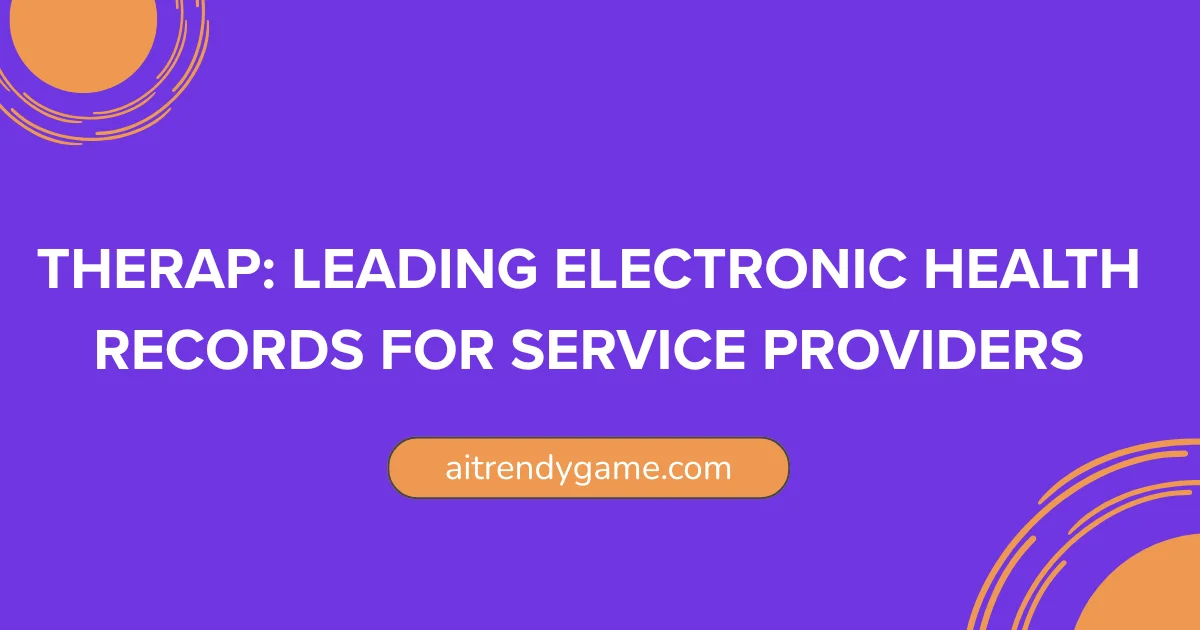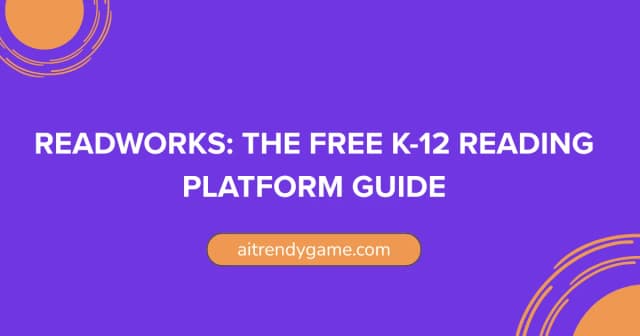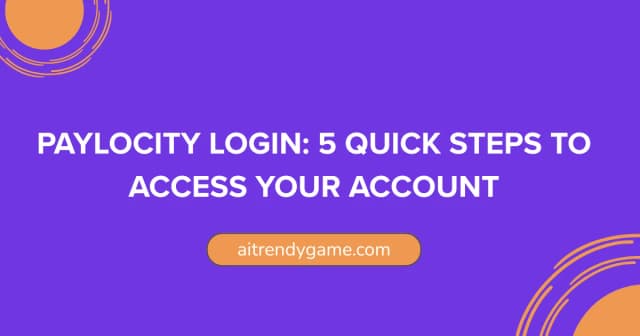
The healthcare documentation landscape has evolved dramatically over the past decade, and service providers working with individuals who have developmental disabilities need robust systems that go beyond basic record-keeping. This is where Therap has established itself as the industry leader, transforming how organizations document care, track outcomes, and ensure compliance.
What is Therap?
Therap Services represents more than just software—it’s a comprehensive electronic health record (EHR) system specifically designed for service providers supporting individuals with intellectual and developmental disabilities (I/DD). Built on decades of real-world experience from state employees and service providers themselves, Therap understands the unique challenges that community-based organizations face daily.
Unlike generic EHR systems adapted for disability services, Therap was purpose-built from the ground up to address the specific documentation needs, regulatory requirements, and workflow patterns of I/DD service providers. This fundamental difference means every feature, every module, and every interface decision reflects actual provider needs rather than retrofitted healthcare templates.
The Evolution of Documentation in Disability Services
Before specialized systems like Therap emerged, service providers struggled with paper-based documentation systems that created multiple challenges. Staff members spent hours filling out forms, coordinators couldn’t access real-time information about the people they supported, and regulatory compliance meant rooms full of filing cabinets and constant anxiety about missing documentation during audits.
The transition to electronic systems wasn’t just about digitizing paper—it required rethinking how information flows through an organization. Therap recognized that effective documentation serves multiple audiences: direct support professionals need quick data entry on mobile devices, nurses require comprehensive health tracking, program coordinators need oversight across multiple individuals, and state agencies demand specific reporting formats.
Core Functionality That Sets Therap Apart
Comprehensive Documentation Capabilities
Therap’s documentation system covers the full spectrum of services that I/DD providers offer. The platform includes modules for Individual Service Plans (ISPs), daily progress notes through T-Logs, incident reporting, medication administration records (MARs), health tracking, behavioral data collection, and communication logs between staff, families, and providers.
What makes this comprehensive approach effective is the interconnection between modules. When a staff member documents a health concern in a T-Log, that information can automatically alert nursing staff, appear on health tracking dashboards, and connect to the individual’s ISP goals if relevant. This integration eliminates the duplicate data entry that plagued earlier systems.
Mobile-First Design for Real-World Use
Direct support professionals don’t work at desks—they’re in the community, in residential settings, and on the move throughout their shifts. Therap’s mobile applications for both iOS and Android enable staff to document in real-time, exactly when and where services occur.
The mobile apps aren’t watered-down versions of the full system. Staff can access T-Logs for quick documentation, view ISP information to guide their support, check medication schedules, report incidents immediately, and communicate with team members—all from their smartphones. This real-time capability ensures documentation accuracy improves dramatically because staff record information immediately rather than trying to remember details at shift’s end. Similar to how educational gaming platforms have made learning more accessible through mobile technology, healthcare documentation has benefited from mobile-first design principles.
The ISP Program: Person-Centered Planning in Action
Individual Service Plans represent the cornerstone of quality services in the I/DD field. These plans outline each person’s goals, preferences, support needs, and desired outcomes. Therap’s ISP module transforms what used to be static Word documents into living, dynamic plans that drive daily practice.
The system guides teams through person-centered planning processes, ensuring all required elements appear in the plan while maintaining focus on the individual’s voice and preferences. Once created, ISPs integrate throughout Therap—staff can see relevant goals while documenting, supervisors can track progress toward outcomes, and the system can generate reports showing how daily activities connect to plan objectives.
Training videos within Therap help teams understand not just how to use the software, but how to conduct meaningful person-centered planning. This educational component reflects Therap’s understanding that technology alone doesn’t create quality services—skilled, informed staff using good tools do.
Artificial Intelligence Tools: The Future of Documentation
Recent developments in Therap’s platform showcase how artificial intelligence can enhance rather than replace human judgment in healthcare documentation. The AI tools within Therap have been carefully trained and tested using appropriate datasets that reflect the diversity and complexity of real-world disability services.
These AI capabilities help with tasks like suggesting relevant documentation based on patterns, identifying potential health concerns from entered data, streamlining report generation, and reducing repetitive data entry. Importantly, Therap’s AI tools operate as assistants to professional judgment rather than automated decision-makers. Staff members retain full control while benefiting from intelligent suggestions that improve efficiency and catch potential issues.
The ethical implementation of AI in healthcare requires transparency about how models are trained, what decisions remain with humans, and how privacy protections work. Therap’s approach demonstrates understanding that service providers need AI tools they can trust and explain to the individuals and families they serve.
Therap Connect: Reducing Intrusive Monitoring
One of the most innovative developments in Therap’s ecosystem is Therap Connect, which launched in early 2025. This platform interfaces with third-party devices and tools that enable individuals with disabilities to manage their own health and gain greater independence.
Traditional healthcare monitoring often required direct observation by support staff, which could feel intrusive and limit privacy. Therap Connect changes this dynamic by integrating with wearable devices, smart home sensors, medication reminders, and other assistive technologies. These tools collect necessary health and safety data while reducing the need for constant direct monitoring by support professionals.
For example, an individual might use a connected device to track their own medication adherence, physical activity, or sleep patterns. This information flows into Therap’s health tracking modules, allowing support teams to monitor trends and respond to concerns without hovering over someone’s shoulder. The result is greater independence for individuals and more efficient use of staff time focused on meaningful support rather than basic monitoring.
Real-World Impact: How Organizations Use Therap
Across the United States and internationally through Therap Global, thousands of service provider organizations rely on this platform daily. Large state agencies use Therap to standardize documentation across hundreds of contracted providers, ensuring consistent quality and simplified auditing. Mid-sized community organizations benefit from having enterprise-level functionality without needing extensive IT infrastructure. Smaller providers gain access to sophisticated tools they couldn’t develop independently.
The impact extends beyond operational efficiency. When documentation is comprehensive, accurate, and easily accessible, individuals receive better coordinated care. Health concerns get identified earlier. Service plans reflect what’s actually happening rather than what was planned months ago. Families can access information about their loved ones more readily. State oversight focuses on outcomes rather than paperwork compliance.
Training and Support: Setting Users Up for Success
Implementing a comprehensive EHR system represents a significant change for any organization. Therap addresses this challenge through extensive training resources, including over 250 training sessions covering topics from basic system navigation to advanced features like AI tools, person-centered planning techniques, quality assurance processes, and specialized health tracking.
These training sessions aren’t just technical tutorials—they incorporate best practices in disability services, helping organizations improve their practices while learning the software. This holistic approach recognizes that technology implementation succeeds when it aligns with improved service delivery rather than simply automating existing processes. Just as educational games and platforms have revolutionized learning through interactive experiences, Therap’s training approach makes complex healthcare documentation accessible through comprehensive education.
The Therap Services support team maintains an active presence through multiple channels, ensuring users can get help when they need it. The company’s Facebook presence, with over 6,700 followers, provides updates, tips, and community connection. Direct support resources help troubleshoot technical issues quickly.
Security, Privacy, and Compliance
Healthcare documentation involves highly sensitive personal information, and service providers face strict regulatory requirements around data protection. Therap’s infrastructure includes robust security measures that protect individual privacy while enabling appropriate information sharing among authorized team members.
The system maintains detailed audit trails showing who accessed what information and when, which both protects privacy and supports compliance with state and federal regulations. Data encryption, secure authentication, regular security updates, and compliance with healthcare privacy standards ensure organizations can trust Therap with their most sensitive documentation.
Looking Toward the Future
The disability services field continues evolving toward more person-centered, community-integrated, technology-enabled supports. Therap’s ongoing development reflects these trends, with new features regularly added based on provider feedback and emerging best practices.
The integration of AI capabilities represents one direction for future development, but always with the principle that technology should enhance human connection rather than replace it. Therap Connect’s expansion will likely continue, partnering with more assistive technology providers and enabling greater independence for individuals.
Interoperability with other healthcare systems also represents an important frontier. As individuals with disabilities increasingly access mainstream healthcare settings, their service providers need seamless ways to share relevant information with hospitals, primary care physicians, specialists, and other healthcare partners. The digital transformation in healthcare mirrors developments seen across various interactive platforms where user experience and seamless integration drive adoption.
Why Therap Leads the Industry
Several factors explain Therap’s position as the leading system for service providers. The platform’s origin in real-world provider experience means it solves actual problems rather than theoretical ones. Comprehensive functionality eliminates the need for multiple disconnected systems. Mobile accessibility matches how staff actually work. Continuous development keeps the platform current with field needs and regulatory changes.
Perhaps most importantly, Therap understands that documentation serves people, not just compliance requirements. Every feature ultimately aims to improve services and outcomes for individuals with disabilities. This person-centered approach to software design differentiates Therap from generic healthcare IT solutions.
Getting Started with Therap
Organizations interested in Therap can explore the platform through demonstrations that showcase relevant features for their specific service types and state requirements. The implementation process includes configuration to match organizational workflows, data migration from existing systems, comprehensive staff training, and ongoing support as the organization grows into using the full platform capabilities.
Current Therap users access the system through the main Therap Services website or the Therap Global portal for international users. Mobile apps available through Google Play and the Apple App Store enable staff to work efficiently in any setting.
Conclusion
Therap has established itself as the premier electronic documentation system for disability service providers by understanding the unique needs of this field and building comprehensive, user-friendly solutions. From comprehensive documentation and person-centered planning to mobile accessibility and innovative AI tools, Therap continues evolving to support better services and outcomes for individuals with disabilities.
As the healthcare landscape shifts toward greater integration, technology adoption, and person-centered approaches, Therap positions service providers to succeed in this changing environment. Organizations choosing Therap gain not just software, but a partner committed to advancing quality in disability services through thoughtful technology implementation.
For service providers ready to transform their documentation processes, improve care coordination, and empower the individuals they serve with greater independence, Therap offers proven solutions built on decades of real-world experience and continuous innovation.
Found this helpful? Share it with others who might benefit!
The Premier AI Gaming Directory for Global Visibility
AITrendyGame connects game developers with 100K+ monthly users. Submit your game for instant global exposure, premium backlinks & social promotion.
Submit Your Game 🚀Related Articles

MathsWatch Review: Is It Worth It for GCSE?
If you’ve been assigned MathsWatch homework by your school, or you’re a teacher looking to bring a proven digital tool into your maths lessons, you’ve likely found yourself with a lot of questions. What exactly is MathsWatch? How does it work? Is it actually worth using and how does it stack up against alternatives like […]

ReadWorks: The Free K-12 Reading Platform Guide
Every K-12 teacher knows the feeling: lesson planning at 10 p.m., searching for a reading passage that actually fits the grade level, aligns to standards, comes with decent questions, and — ideally — does not cost anything. That search, for millions of educators, ends at ReadWorks. Trusted by more than one million teachers and seventeen […]

What Is Starfall? Free Reading & Learning Platform for Kids
Picture this: a parent sitting at the kitchen table after bedtime, scrolling through app after app, desperately trying to find something — anything — that will finally help their child crack the code of reading. Sound familiar? For millions of families around the world, that search eventually leads to one place: Starfall. For over two […]

Paylocity Login: 5 Quick Steps to Access Your Account
For employees looking to access their payroll information, benefits, and HR documents, understanding the paylocity sign in process is essential. The platform serves as a centralized hub where workers can manage their employment information, view pay stubs, request time off, and handle various HR tasks without contacting their company’s HR department directly. The paylocity employee […]
Ready to Join theGaming Revolution?
The future of game discovery starts here. Connect your creation with passionate players worldwide through AITrendyGame – where talented developers meet eager gamers, and great games find their perfect audience.
Your Game Here
Reach millions of players